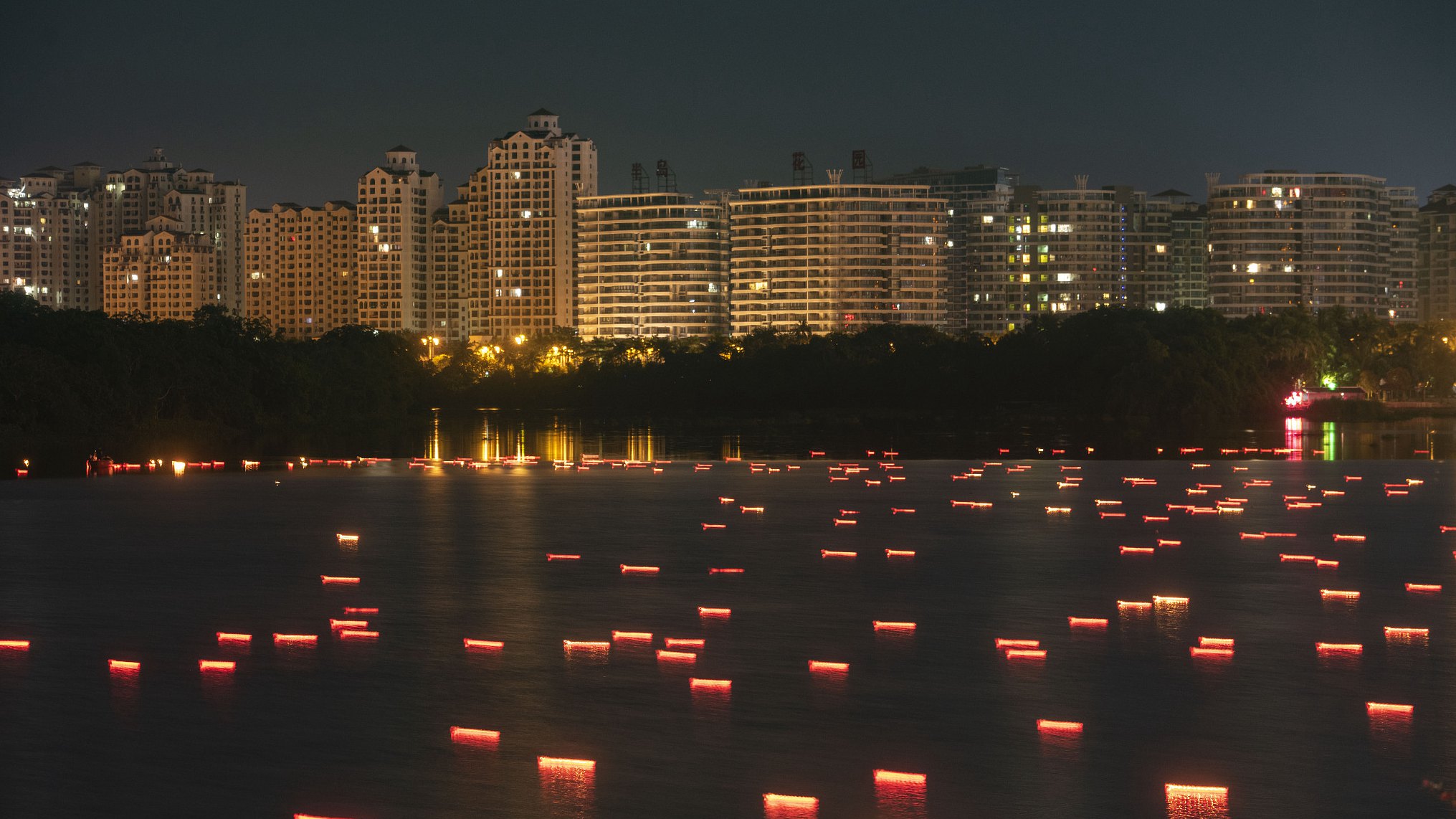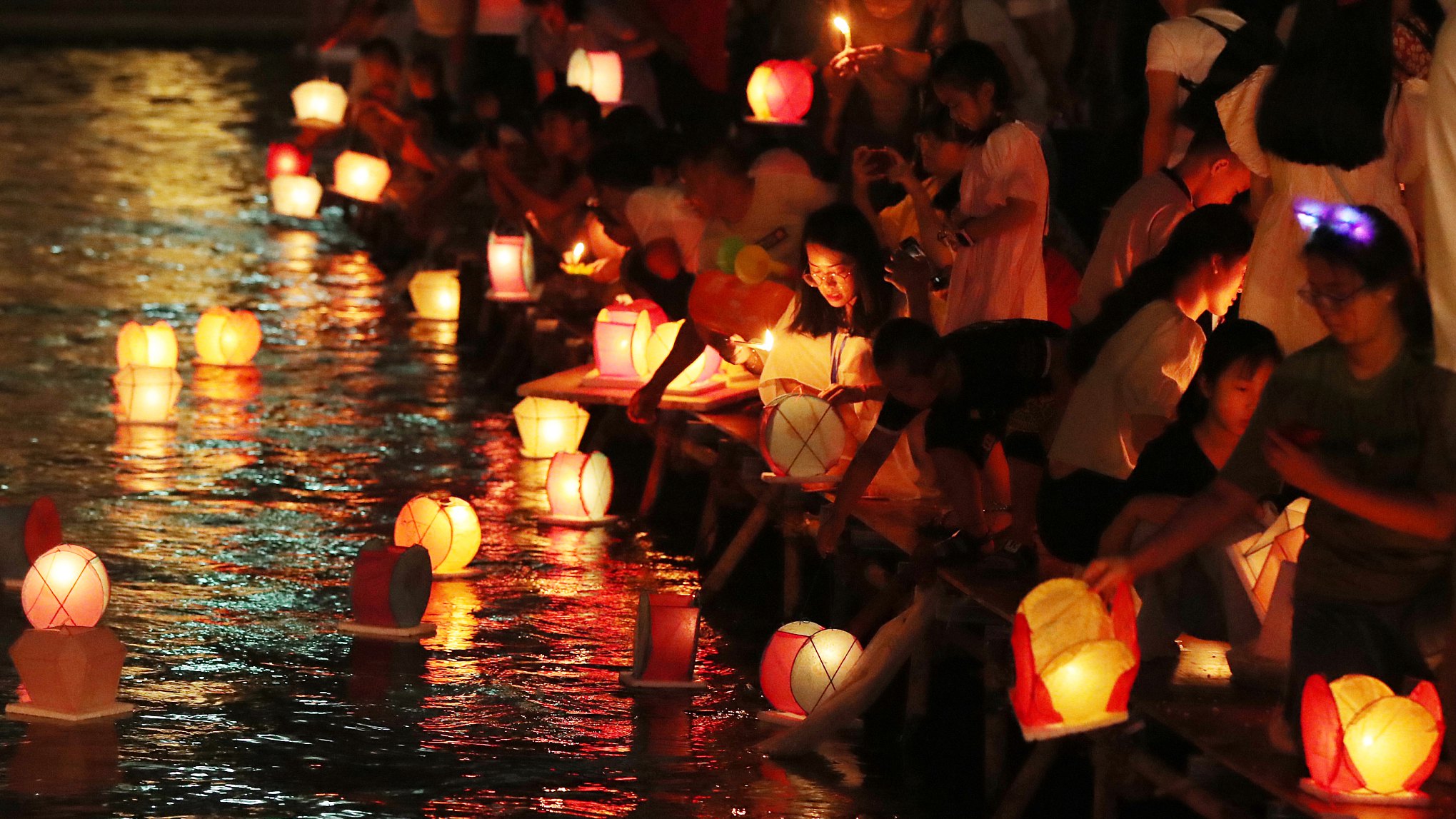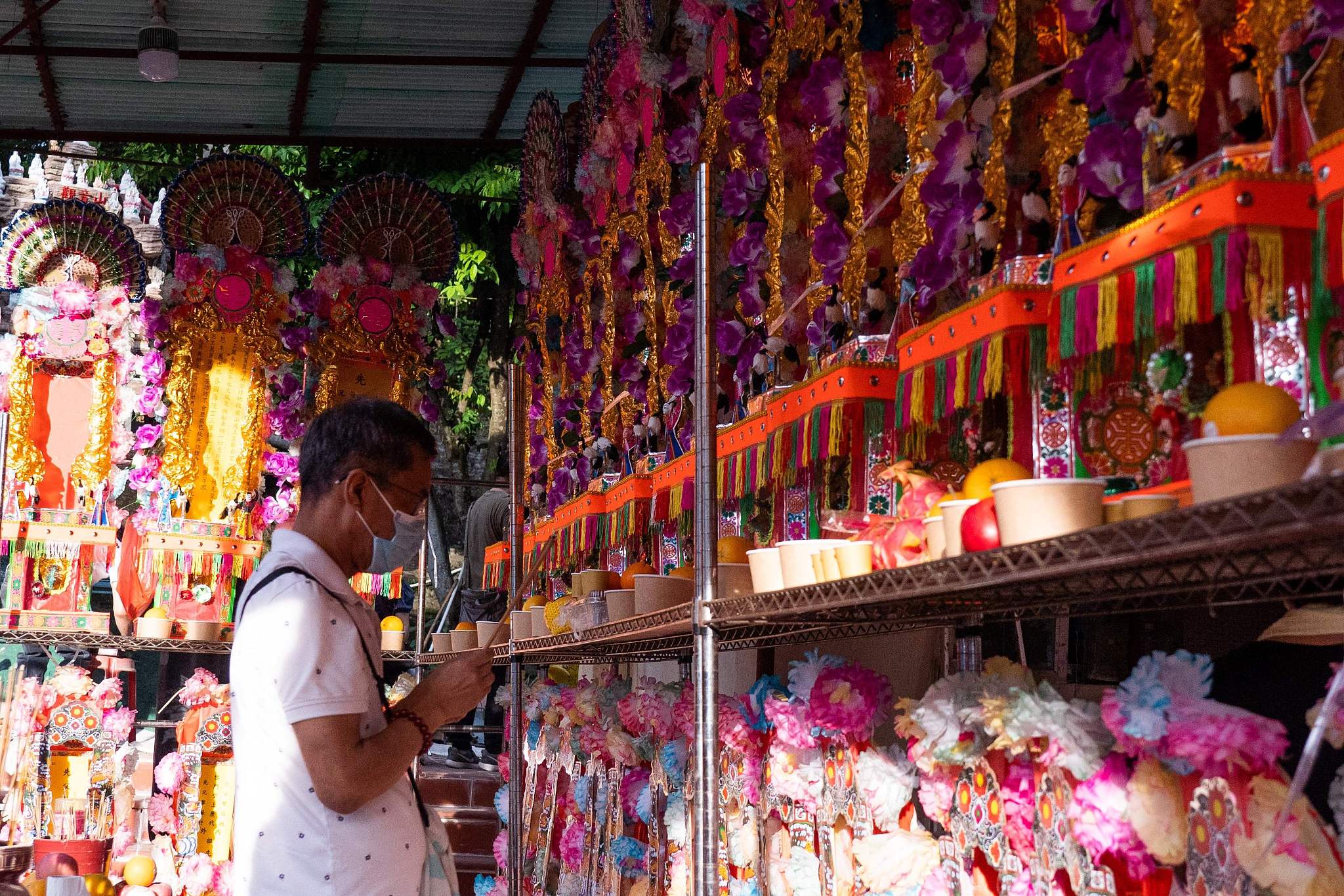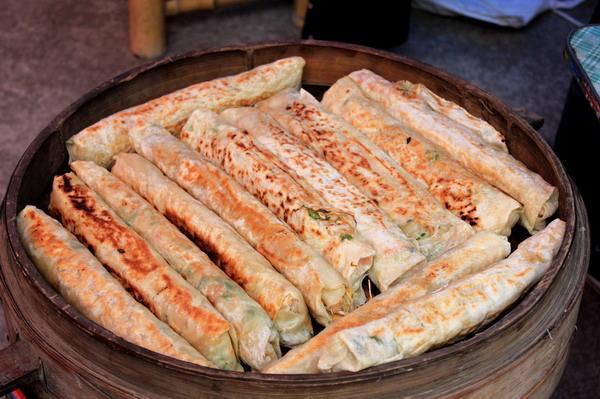
Lanterns float on the Wanquan River in Qionghai, south China's Hainan Province, September 2, 2020. /CFP
Lanterns float on the Wanquan River in Qionghai, south China's Hainan Province, September 2, 2020. /CFP
The Zhongyuan Festival goes by many names. Followers of Buddhism call it Ullambana, while many around China refer to it as the "Ghost Festival."
It falls on the 15th day of the seventh month on lunar Chinese calendar. This year, the date corresponds to August 22 on the Gregorian calendar.
The belief goes that on this day the gates of the spiritual realms open and so people hold all kinds of activities to honor their deceased loved ones.
The Zhongyuan Festival is one of three traditional festivals in China that honor the departed spirits of ancestors. It is also an occasion to pray for safety and express filial piety. The other two festivals are Qingming Festival and the Double Ninth Festival.

People release lanterns on a river during the Zhongyuan Festival in south China's Guangxi Zhuang Autonomous Region, September 1, 2020. /CFP
People release lanterns on a river during the Zhongyuan Festival in south China's Guangxi Zhuang Autonomous Region, September 1, 2020. /CFP
The festival is marked by followers of Taoism and Buddhism. Taoists believe the god of hell frees ghosts from the lower realm on this day, while Buddhists take it as a day to ease suffering and honor the elderly.
During the Tang Dynasty (618-907), the Ullambana Festival was introduced to Japan along with Buddhism and was later called Obon, or Bon. On this day, dead ancestors are believed to return to their living families, so people prepare for the reunion with the performance of Bon Odori, or a Bon dance, to welcome the spirits and pay homage to their sacrifices.
The Zhongyuan Festival is marked in different ways in China.

A man prays in front of his ancestral tablet at a temple in the Hong Kong Special Administrative Region, China, August 21, 2021. /CFP
A man prays in front of his ancestral tablet at a temple in the Hong Kong Special Administrative Region, China, August 21, 2021. /CFP
In folklore stories, the deceased ancestors are released by Yama, the god of hell, for half a month. At the end of their stay in this world, people send them off by burning joss paper with the intention of sending money and other items with them to the afterlife.
Floating water lanterns is another way to mark the festival. They are shaped like the lotus flower and a candle or a lamp is usually placed in the middle. The lotus is a symbol of fortune and enlightenment in Buddhism and is meant to wish the ancestors peace.

In some parts of east China's Zhejiang Province, people prepare food similar to spring rolls. /CFP
In some parts of east China's Zhejiang Province, people prepare food similar to spring rolls. /CFP
The day is also celebrated in the kitchen in different parts of China. In the eastern province of Jiangsu, people shred eggplant, dredge it in flour and fry it to make cakes to worship their ancestors. In some parts of the eastern province of Zhejiang, people prepare food similar to spring rolls.
In parts of northern China, people choose to eat simple meals instead of big feasts on this day to honor the dead.

